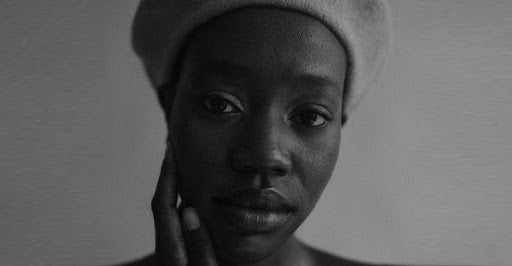By Mekdela Daniel
From influencers posting their “self-care sunday” candlelit baths to their daily meditations, self-care has become a huge part of pop culture and social media. Although we can gather inspiration from social media, the reality is, self-care can’t be defined as a one-size-fits-all –there is a nuance to the journey. It’s important to figure out what self care means to you through new experiences whilst being self-aware, rather than trying to fit in a box of someone else’s definition.
Journaling is a key tool many of us find through our self-care journeys. Candace Jones, the founder of everythingsheis.co, created the Self-Love workbook to help young women by providing a guided journal to assist them in becoming their most authentic selves. The Self-Love workbook allows writers to answer questions that lead to deep internal thinking and an emotional understanding of self.
Nappy Head Club sat down with Candace Jones, founder of Everything She Is Co., to have an open dialogue about crafting your own self-care journey, combating imposter syndrome, and the relationship between our identity and our hair as Black women.
What are some of the mainstream self care habits that you thought would work for you, but just did not work?
Candice:
I’d say traditional journaling isn't my thing. I need guided prompts. I need you to tell me what I need to write. I can’t do both the vulnerability piece and then also think of the exercise. So, journaling doesn't really help that much for me, unless it's a brain dump. What else doesn't really work? Relief for me could connect to a mental place. So if I'm taking a bath, yes, it feels good to my body, and it feels relaxing. But as far as digging deeper under the surface, it doesn't really do that for me. So, I have to section out my self care, okay, this self care is about feeling luxurious. This self care is about getting to know yourself better. This self care is about getting active and making sure that your body feels good. So, kind of separating those things. So I'm not using one for the other thing and expect it to do something. So for me, mainstream self care, I employ all of them, like meditation and all that kind of stuff. However, it's about the intention behind it.
What inspired you to create the Self Love Workbook?
Candice:
What inspired me to create the workbook was feeling like I was at the lowest point of my life. So, I had graduated college very confused and lost about what I wanted the trajectory of my life to look like. It was different from what I initially thought. I thought I wanted to be a doctor. Things changed and I didn't know where to go from there. So, I tried a bunch of things from social media. A lot of what social media pushes about self care is the aesthetically pleasing things: taking a bath, pouring a glass of wine, all those kinds of things. I tried those things, but I didn't feel better. I still felt like I was carrying a lot of shame and guilt around my career change. A lot of experiences that happened throughout college, failed relationships, etc. Doing the mainstream self-care things wasn't getting it off of me; there was still that weight. So the first thing that I actually did was watch a sermon from Mike Todd and he talked about shame. I was like, okay, I think I think I feel shame. I sat down and started to write things that I felt regret for and when I tell you everything just kind of fell from under my feet. Because at that point, I hadn't cried. I hadn't really felt my emotions. I just knew that I was off. You know, getting that pen to the paper and really seeing and working through what I felt regret for was the start of my self exploration, the start of really trying to dive deeper into who I am and how I'm feeling.
So from there, I'm like, okay, what other questions can I ask myself that really help me get to the bottom of what's troubling me? And how can I fix it? So I think from there, I did my own research. Afterwards, I felt like I was in a better place, people might not know where to start. They don't know what questions to ask. So let me put it together and give it to the world to say okay, even if you don't even know if you need these questions right now- you have this resource that can crack you open when you don't even know that you need it. So, a lot of people get the book, and they're like, okay, it's so cute. Then they're like, girl, this was a lot. I think it's very important to know yourself, where you come from, what sort of things affected you, and why you are the way that you are. Instead of just being like, this is just how it is. It helps uncover a lot.
How do you break the lazy habits that you've started during the pandemic and get back to self care?
Candice:
I think you want to start off slow. If there is one self care activity that you really love and it’s the easiest one to get done this week, start with that. You don't have to jump in and journal everyday. That puts pressure on something that's supposed to be good for you. So, now there's negative thoughts around it. Now you feel like “oh, man, I didn't do my self care today.” Is that thinking of self care? So start slow. If there's one thing that you can incorporate today, then do that. One thing that I talk about is the self care of just being in the moment. Whether you are cleaning dishes, or whether you're folding clothes, or whatever the case may be, you can choose to be mindful. You can choose to be present in your body. You can choose to not rush. You can choose to move slow, be easeful, and invite those feelings in. For me, that is self care. So, it doesn't have to be an elaborate routine in order for you to get back on track. You can start with small things and kind of ease into your routine.
How do you balance learning to love yourself versus wanting to change your appearance?
Candice:
I felt that with a lot of things, not even just my appearance, but I think when you give yourself a certain identity, you feel boxed into it. You feel like, okay, I'm the girl that does this and you don't give yourself the permission to explore. Permission is important. It's important to try on different things (ex. a new wig), it’s okay to change up your look. I think as long as you're doing it from a place of exploration, and not from a place of seeking something else- seeking people to accept you. It's about where this decision is rooted from. If the root is you feel insufficient, you feel like there's a lack, and you want to be different for that reason, I feel like that's something that you need to zoom into and really figure out. It’s a self awareness piece, you have to know when you're doing something for somebody else and when you're doing it for yourself.
I think there's a lot of pressure in the natural community too-“Oh, you're not natural if you do this.” You're like, “Okay, girl, then who cares?” Who cares if I'm considered natural because I colored my hair? You know, it's not even about that. We put these strict rules on what being natural is. I feel like it robs us of the creativity and versatility that is supposed to be the selling point of our hair. We're versatile. We should be able to lean into that versatility without feeling like we're neglecting our roots and that we don't love ourselves.
How did you learn to love your hair?
Candice:
I had to not give up and not expect it to happen overnight because you have to learn what works for your hair. As much as you can watch YouTube videos, (I'm somebody that tries to help other girls through the process) but as much as you can watch me and other natural hair influencers, only you have your hair and nobody else can tell you exactly what's going to work best for you. So I think not giving up for one and then finding things that you really love. You don't have to love your hair in every single state. I don't, I can't do a twist out that well, I did one good one, and I can't get it back. So, let that go. Let it go. And if it's a bun, if it's a ponytail, in braids, whatever the case may be, find what it is that you really, really like. And don't feel bad if you want to stick to that. You don't have to do everything with your natural hair, you can find what's for you, whether it be locs, or whatever the case may be. Just don't give up on finding that.
Understanding that there will be things that you love and there will be things that you don't. We just have to be gentle with ourselves. Sometimes, I might wake up in a style that I usually like and today I just don't like it. It's like okay this sucks, but we move.
How do you combat imposter syndrome when it comes to being a business owner?
Candice:
It's about challenging your thoughts. I think once you realize that there is a difference between how you feel vs. what the reality is about yourself, you can start to challenge yourself in that way. So if the thought is, I'm not qualified for this position or job, you can, then, respond to that. It doesn't have to be a period at the end of that just because you thought it. You can respond to that and say, “No, I've done this, I've done that, I've succeeded in this way, and this is something that I deserve.” You can speak life into yourself that way. I think when you get to the position where you are the person that speaks life into you, and you look to yourself for that validation inside, instead of other people, you give yourself that power to just say, “Hey, no, that's not the truth. I'm not an imposter. This is something that I deserve. This is something that I've worked hard for.” I think it helps to recount the things that you've done, why do you feel like this is the position that you're in? And why the journey that has taken you to this point? It can kind of reassure and reinforce that positive thinking.
Our minds are wired to think negatively because we need to survive, right? So, we are constantly looking for threats. We're looking for danger. We need to protect ourselves and we need to survive. This is why our brains are wired that way. But that doesn't mean that that's the end of the conversation.




JOIN THE DISCUSSION (0 comments)